Advanced electromyography testing with same-day results to diagnose numbness, tingling, and muscle weakness.
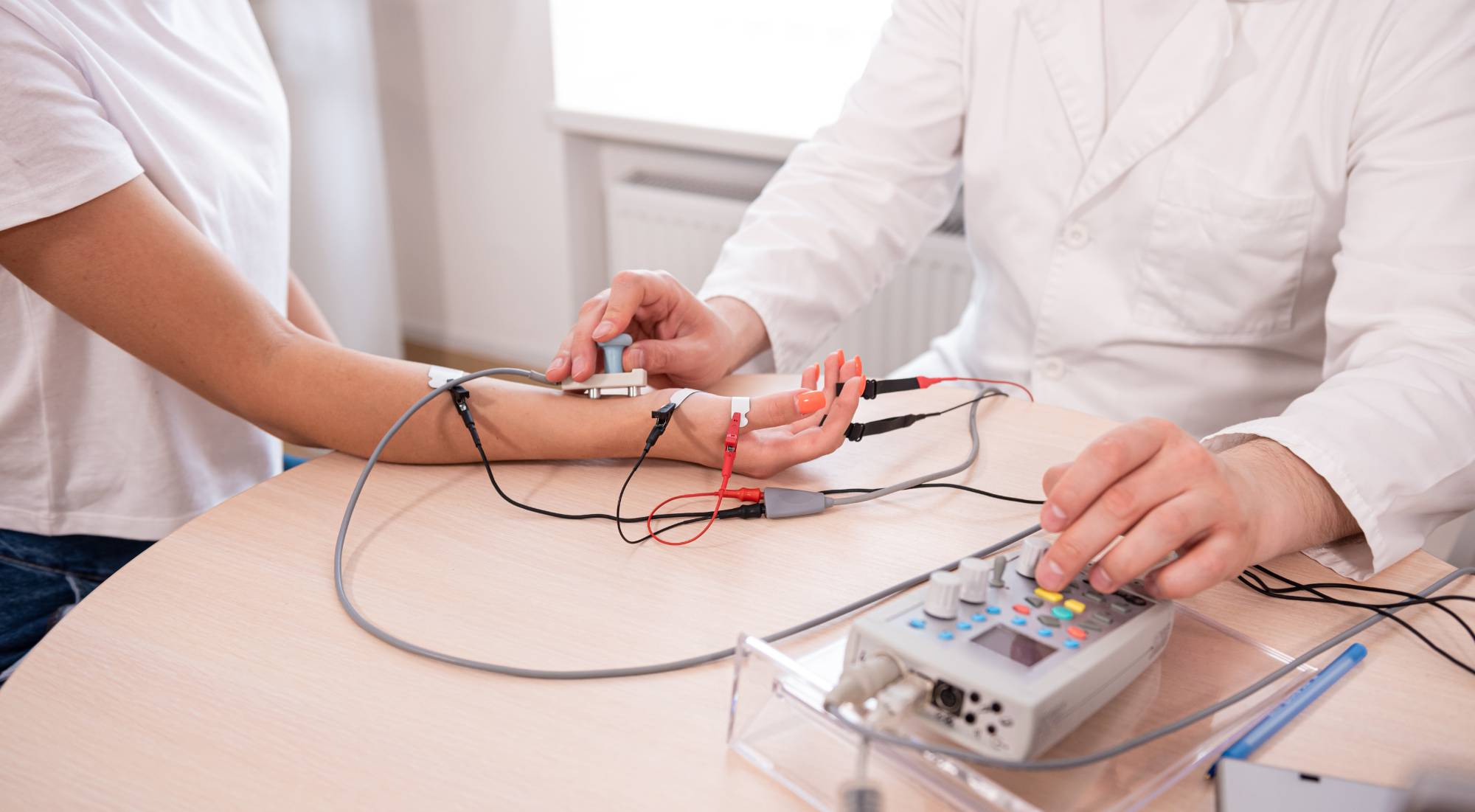
Reviews
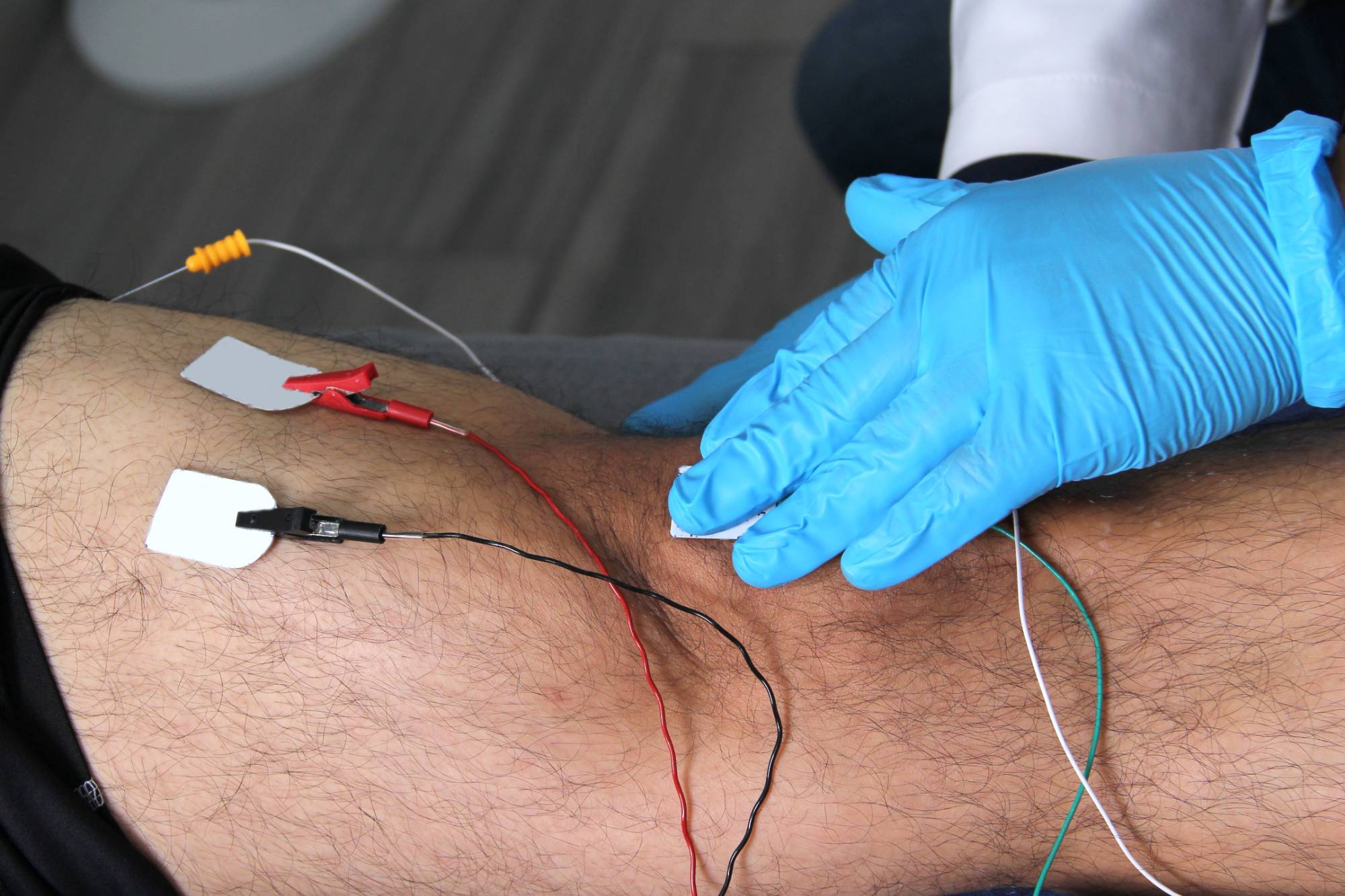
That persistent numbness in your hands isn’t something you should ignore. The tingling that shoots down your leg deserves an answer. When nerve symptoms disrupt your daily routine, you need diagnostic testing that gives you clear, actionable results.
EMG testing and nerve conduction studies reveal exactly what’s happening with your nerves and muscles. You’ll understand whether that weakness stems from nerve compression, muscle disease, or spinal issues. No more wondering if your symptoms are serious or manageable.
Our electromyography diagnostic testing measures electrical activity in your muscles and the speed of nerve signals. This combination gives us a complete picture of nerve function, helping identify conditions like carpal tunnel syndrome, pinched nerves, peripheral neuropathy, or muscle disorders. You get precise answers, not guesswork.
We have been serving Tribeca and the greater Manhattan area with comprehensive spine and nerve care. Our board-certified specialists focus exclusively on diagnosing and treating conditions affecting the spine, nerves, and muscles.
Located in the heart of Tribeca, our practice combines advanced diagnostic technology with personalized patient care. We understand that nerve symptoms can be concerning, which is why we prioritize clear communication and thorough explanations of your test results.
Our team has performed thousands of EMG and nerve conduction studies, giving us the experience to detect subtle abnormalities and provide accurate diagnoses. When you need answers about nerve pain or muscle weakness, you want specialists who’ve seen it all.
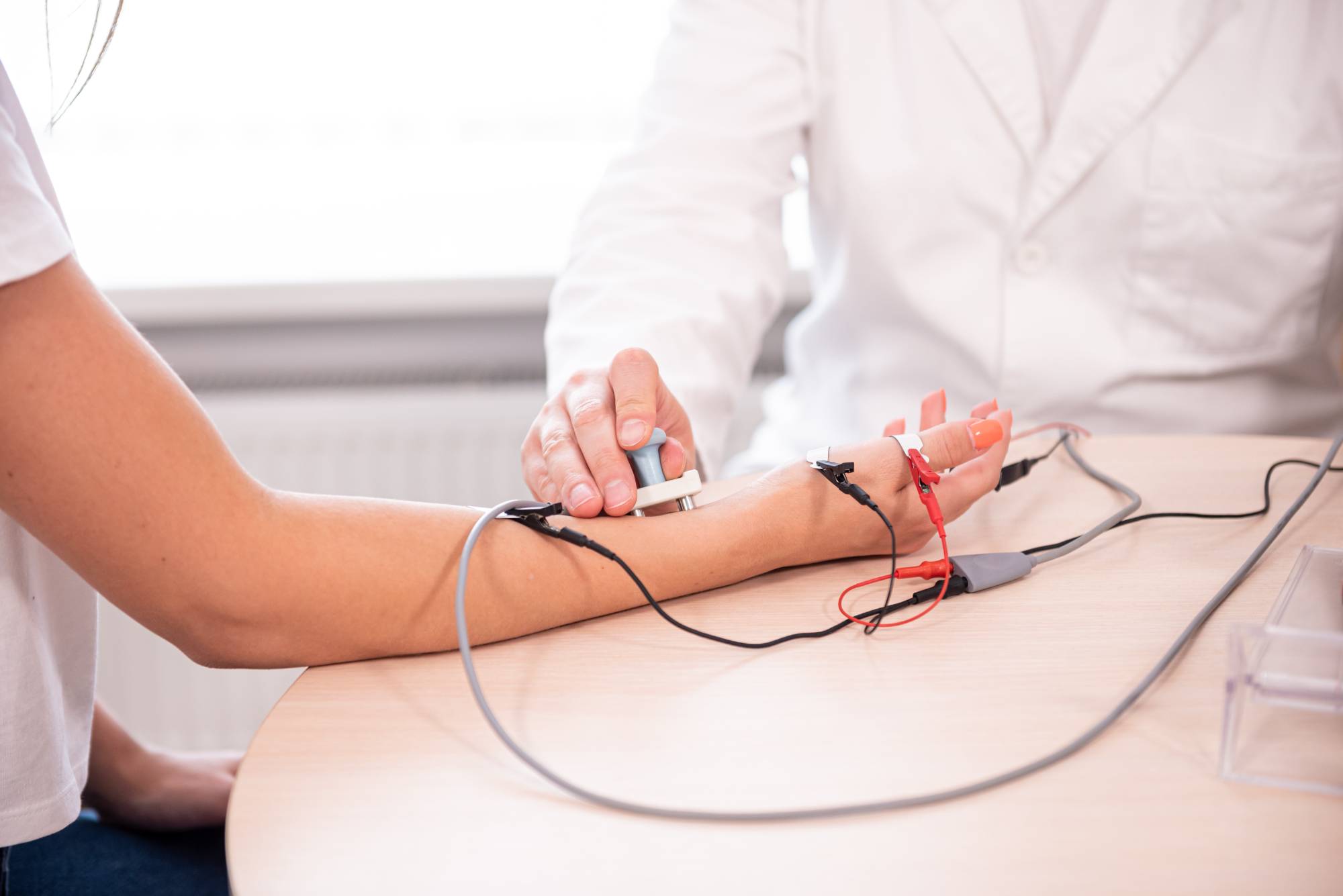
Your EMG testing appointment typically takes 30-60 minutes and involves two main components. First, we perform nerve conduction studies using small electrical pulses to measure how quickly signals travel through your nerves. This feels like brief, mild shocks and helps identify nerve damage or compression.
Next comes the electromyography portion, where we insert thin needle electrodes into specific muscles to measure electrical activity. While this sounds uncomfortable, most patients find it much more tolerable than expected. The needles are very thin, and we test only the muscles necessary for your diagnosis.
Throughout the test, we explain what we’re finding and what it means for your condition. You’ll receive your results the same day, along with a clear explanation of next steps. Whether that’s physical therapy, medication, or further treatment, you’ll leave knowing exactly what’s happening and how to address it.
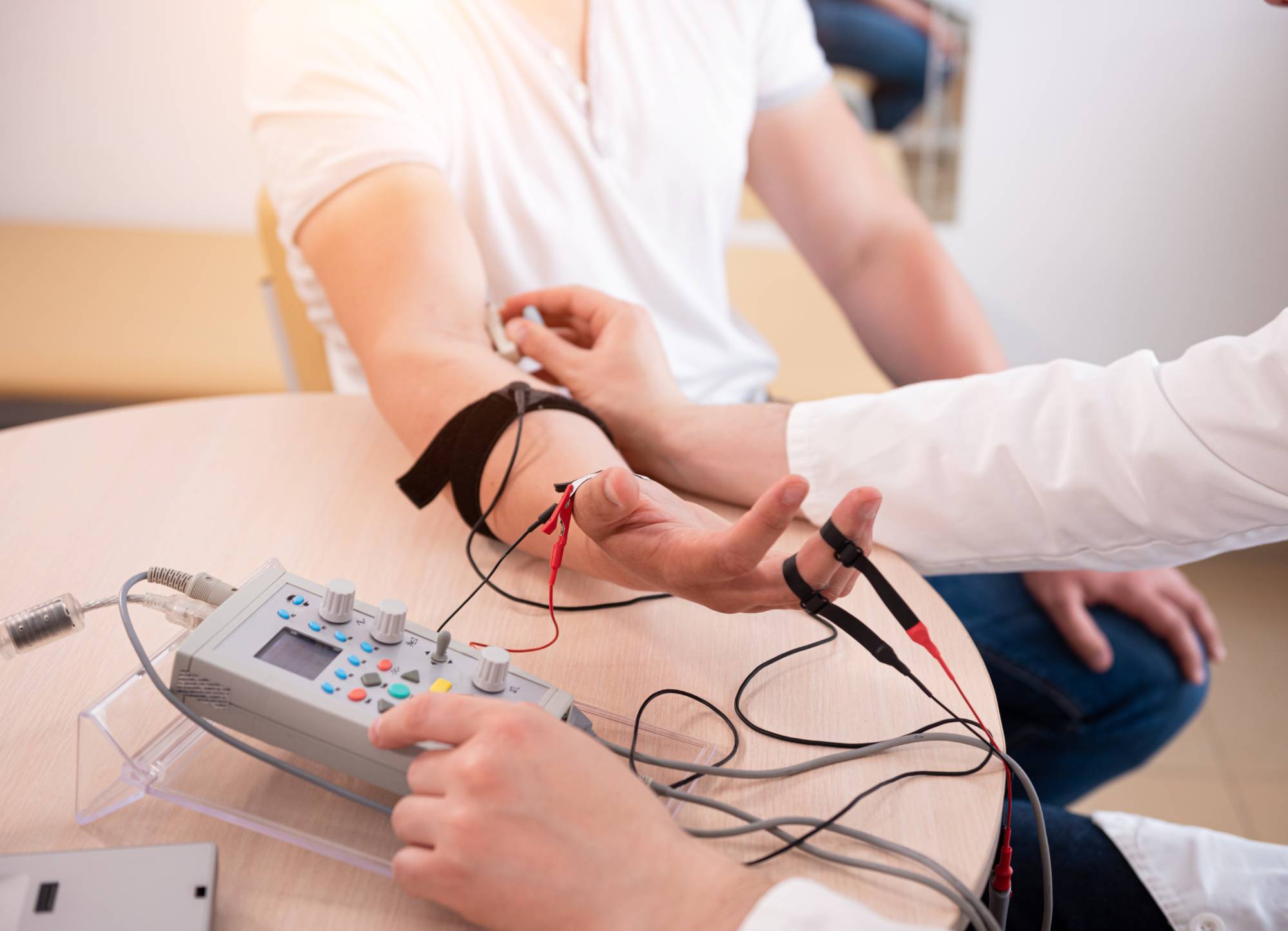
Ready to get started?
Our EMG testing services include both electromyography and nerve conduction velocity studies, giving you comprehensive evaluation in a single appointment. We test upper and lower extremities, depending on your symptoms, and can evaluate everything from carpal tunnel syndrome to sciatica.
You’ll work with specialists who understand the connection between spine health and nerve function. This means we’re not just identifying nerve problems – we’re determining if spinal issues are the root cause. Our integrated approach often reveals underlying conditions that other providers miss.
We accept most major insurance plans and provide transparent pricing for self-pay patients. Our Tribeca location offers convenient scheduling, including same-week appointments for urgent cases. You won’t wait weeks for answers when nerve symptoms are affecting your quality of life.
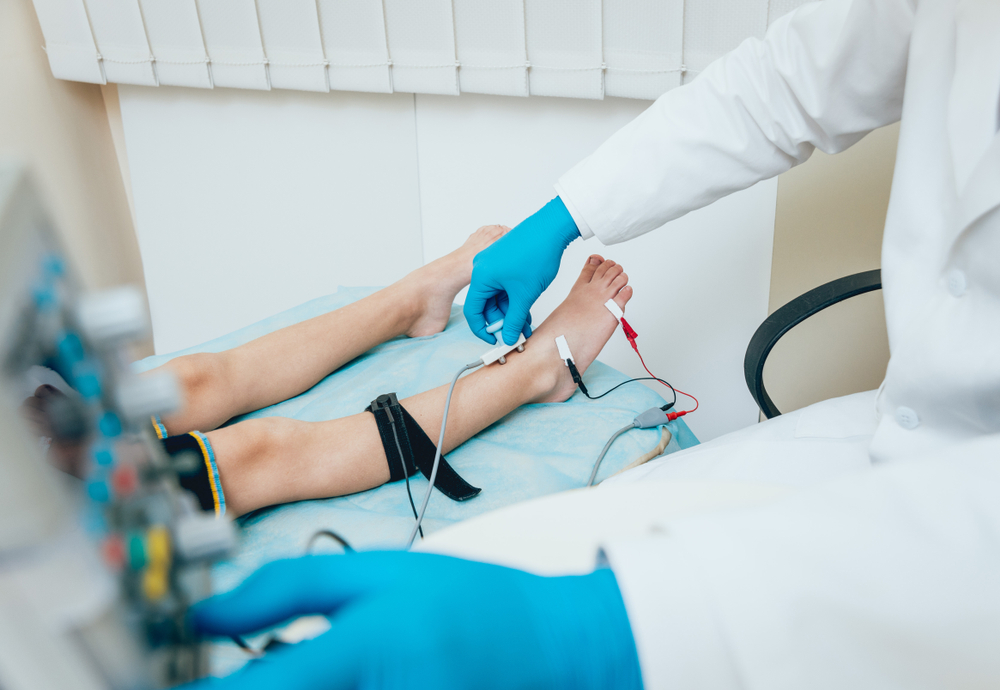
New York:
Florida:
Support